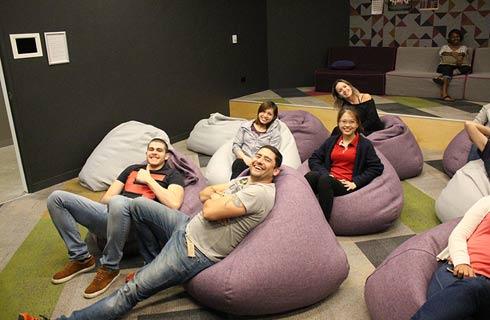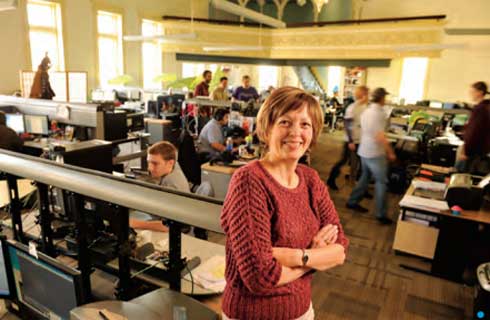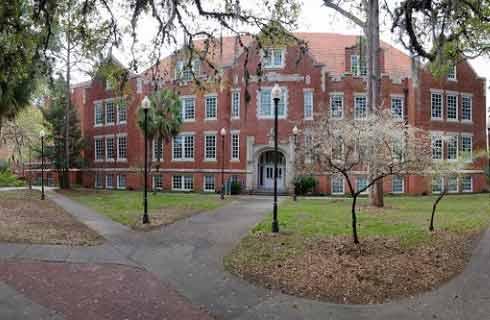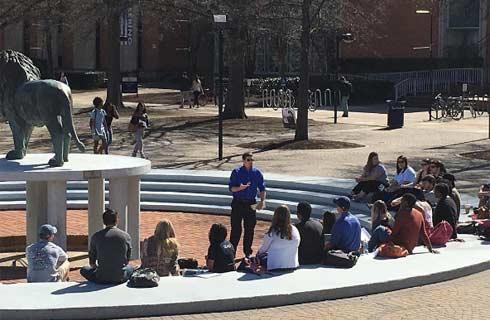Master of Science in Geological Sciences - Earth Science Education

学历文凭
Masters Degree

专业院系
Geological Sciences

开学时间

课程时长

课程学费

国际学生入学条件
IDP—雅思考试联合主办方

雅思考试总分
6.0
- 雅思总分:6
- 托福网考总分:75
- 托福笔试总分:537
- 其他语言考试:Duolingo - 120
CRICOS代码:
申请截止日期: 请与IDP联系 以获取详细信息。
课程简介
相关申请
 预科
预科 奖学金
奖学金 实习机会
实习机会 在校学习
在校学习 跨境学习
跨境学习 校园授课-线上开始
校园授课-线上开始 在线/远程学习
在线/远程学习
开学时间&学费
学费信息仅供参考,请与IDP联系以获取详细信息
| 开学时间 | 时长 | 学费 | 地点 |
|---|
学校排名

世界排名124
数据源:
泰晤士高等教育世界大学排名
关于科罗拉多大学博尔德分校

科罗拉多大学波德分校成立于1877年,是落基山地区优秀的综合性研究型大学,该校的自然科学、工程学、商务、法律、艺术、人文、教育、音乐等学科尤为突出。科罗拉多大学波德分校校园景色壮观美丽,吸引了一流的师资和来自世界各自的莘莘学子,共同构建了一个充满活力的校园环境。科罗拉多大学波德分校距离卡罗拉多州首府丹佛仅30英里(48公里)只需短程驾车便可达到美国发展最快的城市之一。由于临近丹佛,科罗拉多大学波德分校也接近许多主要的文化圣地、有许多实习和工作机会。学校附近的实习和工作单位:IBM、波音、谷歌。科罗拉多大学波德分校是久负盛名的“美国大学协会”的34 所公立大学之一,是一所具有卓越学术和尖端科研的美国顶级高校。该校强大的校友网、与龙头企业密切合作、高排名的学术成就、丰富的校园及社区活动为学生学业及未来职业发展提供了无限机遇。
本校相关课程

戏剧与表演研究哲学博士
学历文凭
Ph.D.
开学日期
课程费用总额


戏剧和表演研究文学硕士
学历文凭
Masters Degree
开学日期
课程费用总额


工商管理硕士/电信科学硕士
学历文凭
Double Major Degree
开学日期
课程费用总额


技术,媒体与社会哲学博士
学历文凭
Ph.D.
开学日期
课程费用总额


技术,媒体和社会科学硕士-创意技术和设计(CTD)
学历文凭
Masters Degree
开学日期
课程费用总额


听力学博士学位
学历文凭
Ph.D.
开学日期
课程费用总额

其他相关课程

Doctor of Philosophy in Earth Sciences
 达特茅斯学院
达特茅斯学院泰晤士高等教育世界大学排名:180
学历文凭
Ph.D.
开学日期
课程费用总额


Bachelor of Science in Environmental Geoscience
 德克萨斯农工大学学院站分校
德克萨斯农工大学学院站分校学历文凭
Bachelor Degree
开学日期
课程费用总额


Master of Science in Earth Systems Science
 乔治梅森大学-INTO USA
乔治梅森大学-INTO USA学历文凭
Masters Degree
开学日期
课程费用总额


地球/空间科学教育理学学士
 鲍尔州立大学位
鲍尔州立大学位学历文凭
Bachelor Degree
开学日期
课程费用总额


地球系统科学(GGS)理学硕士
 乔治梅森大学
乔治梅森大学泰晤士高等教育世界大学排名:426
学历文凭
Masters Degree
开学日期
课程费用总额


Master of Science in Coastal and Ecological Engineering
 路易斯安那州立大学-Shorelight
路易斯安那州立大学-Shorelight学历文凭
Masters Degree
开学日期
课程费用总额










